Great Dane bloat can be terrifying. We put together 9 crucial things you NEED to know to stay informed and prepared.
Do you have a Great Dane? If so, you need to be aware of the dangers of bloat. Bloat is a serious condition that can kill your dog if left untreated. In this blog post, we will discuss the five crucial things you need to know about Great Dane bloat. We will also provide tips on how to prevent your dog from developing this condition.
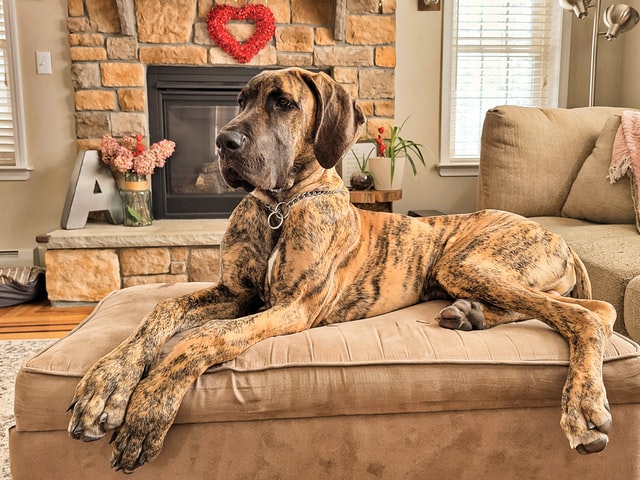
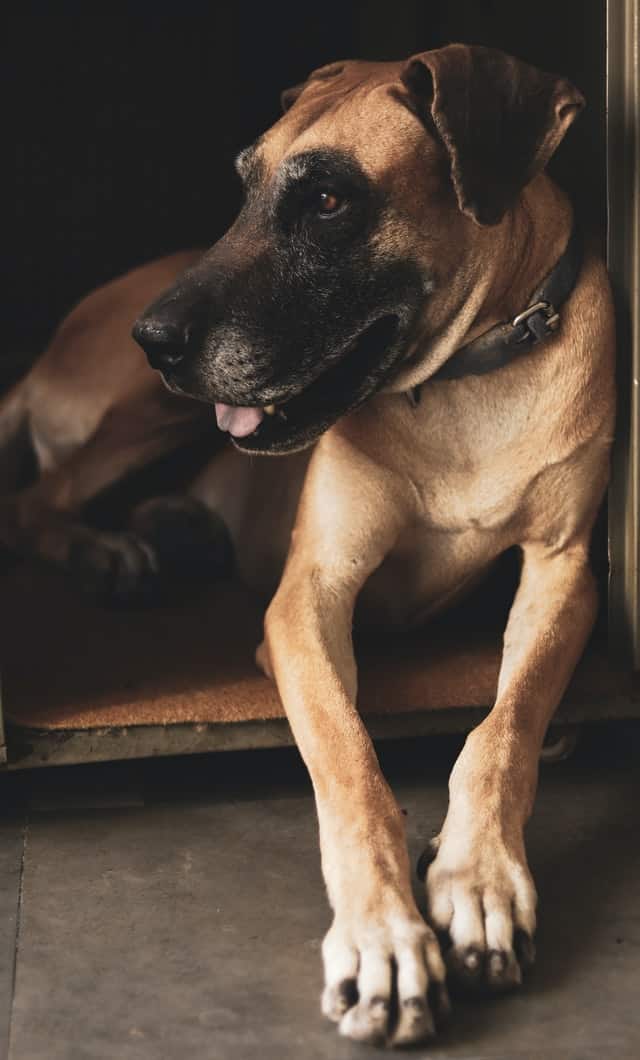
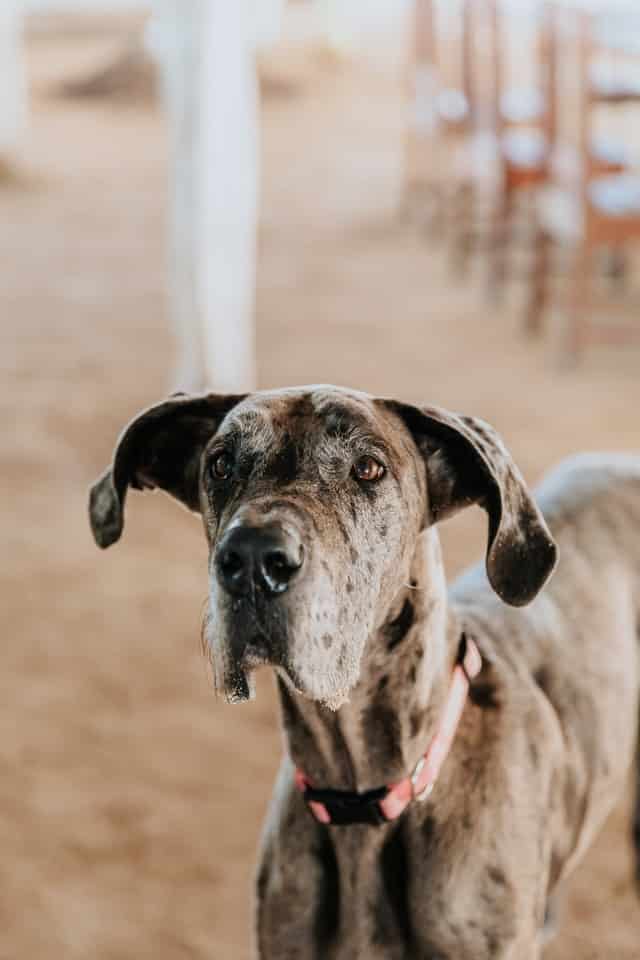
What is Great Dane Bloat (Gastric Dilatation Volvulus)?
Gastric Dilatation Volvulus (bloat) is a life threatening condition that can affect any dog, but is most common in large breed dogs like a Great Dane.
Bloat occurs when the stomach twists on itself, trapping air and gas inside. This can cause the stomach to bloat, which puts pressure on the other organs in the abdomen. If left untreated, bloat can lead to death.
When the stomach fills with air, it causes the stomach wall to twist, which cuts off the blood supply to the stomach.
When the stomach wall twists, it is called torsion. Torsion and gastric dilatation are two separate health conditions, however they are related. Torsion (twisting of the stomach) can pull the internal organs with it, creating major issues within the body wall including the lack of blood flow.
The lack of blood flow can cause the stomach tissue to die. In addition, the pressure on the diaphragm makes it difficult for the dog to breathe.
Bloat is a medical emergency and requires immediate veterinary care. If you think your dog is bloated, call your veterinarian or an emergency animal hospital immediately. It is likely that your dog will need emergency surgery.
Bloat Myths
There are many myths that people believe to lead to bloat in healthy dogs.
Myth Number 1: Resting Before or After Meals
The first myth amongst large breeds is that playing before or after any meals / large meals will cause bloat.
Although it is natural to rest for awhile after or before eating, a dog’s eating and drinking is NOT necessarily correlated with bloat. No study has ever shown efficacy at all in resting as a ‘preventative’, and one study from Tufts University found no correlation at all between exercise and bloat happening.
If a dog is going to bloat, it will happen whether they are resting OR moving, in other words.
“Several popular theories regarding bloat were not substantiated during the study. There was no correlation of bloat risk to exercise before or after eating, as most dogs bloated in the middle of the night with an empty, gas-filled stomach. There was also no correlation to vaccinations, to the brand of dog food consumed, or to the timing or volume of water intake before or after eating.”
Tufts University Study
It will not likely ‘prevent’ gastric dilatation to make your dog rest for an upward of 45 minutes to an hour before you let your dog play, but resting your dog isn’t necessarily harmful, either.
Myth Number 2: A Raised Food Bowl Will Prevent Bloat
Unfortunately, feeding your dog from a raised bowl will not prevent gastric dilatation in your dog.
Your dog’s risk of getting bloat actually seems to be very minimally increased when they eat from a lifted bowl.
There is so much controversy on this topic that many pet parents often argue whether a heightened bowl is a contributing factor that causes a Great Dane to bloat or whether eating from floor surface level is better.
The most recent research in veterinary medicine suggests that there is little to no correlation between bowls of any height and bloat.
What Causes Bloat?
The exact cause of bloat is unknown, but there are several risk factors that have been identified. Large and giant breed dogs are most at risk for developing bloat. Other risk factors include:
- Genetics
- Gut Health
- Anxiety
- Predisposed breeds
We will dive into these risk factors later, but one thing to note is that often times gastric dilatation is like tearing an ACL. Great Dane parents can do everything in their power during their dog’s life to prevent this dangerous condition from happening and minimize the risk of bloat, and it can still happen.
Why Do Dogs Bloat?
The cause of bloat is still unknown, but there are several theories as to why it may occur.
Genetics
The genetics of your Great Dane has been shown to be correlated to the affected dogs. Genetic correlation of bloat in Great Danes means that if you are buying a Great Dane puppy from a breeder, you should inquire if they have had family history of bloat.
Anxiety
Another theory suggests that anxiety may play a role in the development of bloat. Dogs who are anxious or stressed may be more likely to lead to the development of bloat.
Fearful Great Danes can be at higher risk of having bloat. The American Kennel Club even states that dogs who experience anxiety are at double the risk of bloating as dogs who do not experience anxiety. Helping fearful dogs overcome their anxiety can help to lower the risk of bloat.
There are many ways to work to improve your dog’s anxiety including :
- Working with a certified professional dog trainer, behaviorist or your veterinarian to find the best solution for your dog
- Using calming supplements
- Having a regular routine including daily walks, playtime, and mealtimes
- Creating a safe space in your home for your dog
- Using a crate to allow your dog to find and feel safe
- Socializing your dog to the best of your ability with creative socialization ideas
Gut Health
Gut health and overall health of a Great Danes microbiome has been linked to the development of bloat. A dog’s gut microbiome is the collection of all the microbes that live in their gastrointestinal tract.
The health of a dog’s gut has been linked to everything from allergies to cancer. A healthy gut microbiome helps to protect against inflammation, maintains a strong immune system, and aids in digestion.
Dogs with an unhealthy gut microbiome are more likely to develop bloat. This can be caused by many things such as stress, poor diet, antibiotic use, and more.
Click to read the clinical study conducted by Purina Pro Plan that scientifically linked genetics, anxiety and gut health as three of the top indicators in dogs with the highest lifetime risk of bloat.
Predisposed Breeds
There are certain breeds of dogs that have been shown to be predisposed to developing bloat. These breeds include:
- Great Danes
- Weimaraners
- Gordon Setters
- Standard Poodles
- Basset Hounds
- Irish Setters
- German Shepherd
- Old English Sheepdogs
- Doberman Pinschers
Great Danes have the highest risk of any breed, with a lifetime risk of 39% of them experiencing it during their life.
While there are certain breeds that are more likely to develop bloat, any dog can be affected by this condition.
What are the Signs of a Bloated Stomach?
The signs of bloat include:
- bloating
- retching or dry heaving
- restlessness
- drooling
- pale gums
- distended stomach / swollen stomach / distended abdomen / enlarged stomach
- white / foamy puke or attempting to puke but nothing is coming out except for foam
Can You Prevent Large Breed Dogs from the Risk of Bloat?
Unfortunately, there is no surefire way to prevent bloat in large and giant breed dogs.
However, there are several things you can do to minimize the risk:
- Feeding multiple smaller meals per day instead of giving one or two large meal per day
- Avoiding high-fat foods
- Adding probiotics to your dog’s diet and working to improve their overall gut health
- Getting surgery on your Great Dane called Gastropexy that works to prevent Torsion (stomach twisting)
- Speaking to and purchase a Great Dane from a responsible breeder who works to eliminate bloat in their lines of breeding
- Working to make sure that your dog does not make a habit of rapid eating (fast eaters are at a higher risk)
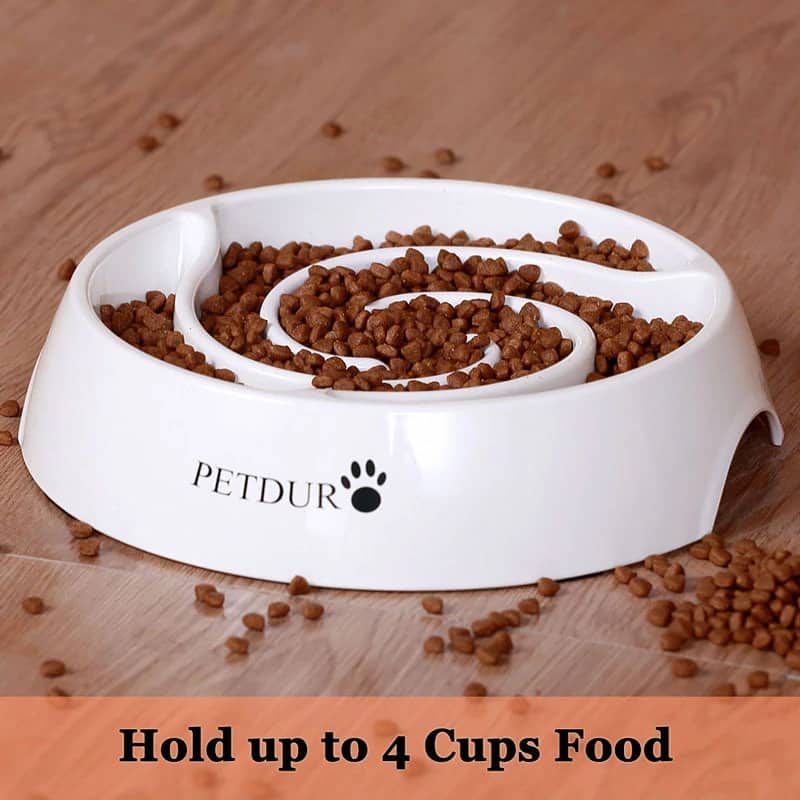
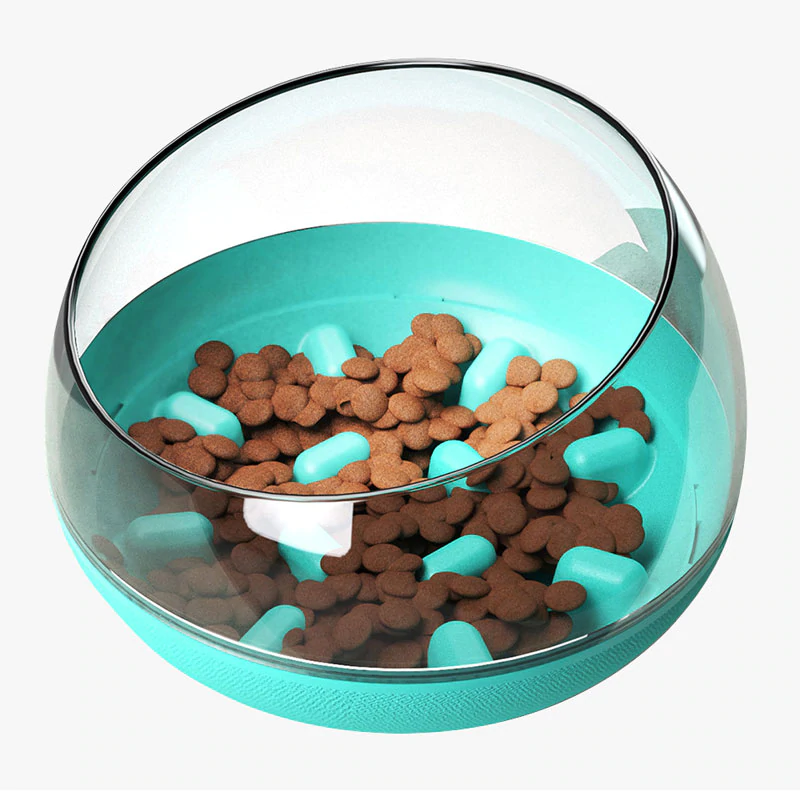
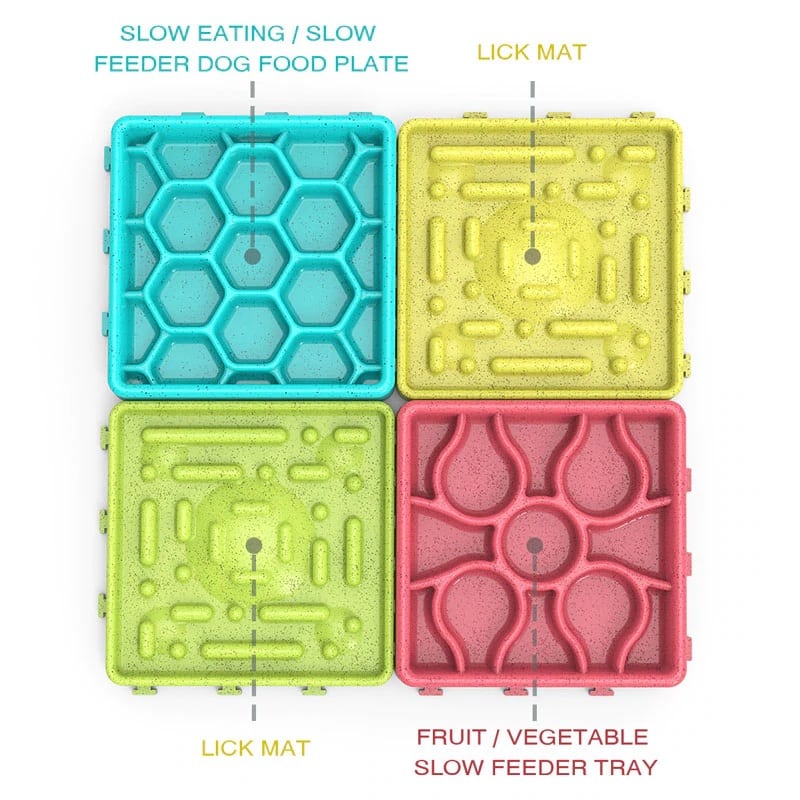
- Adding any amount of moisturized/raw food into their dry food has been shown to decrease the risks of bloat in a dog
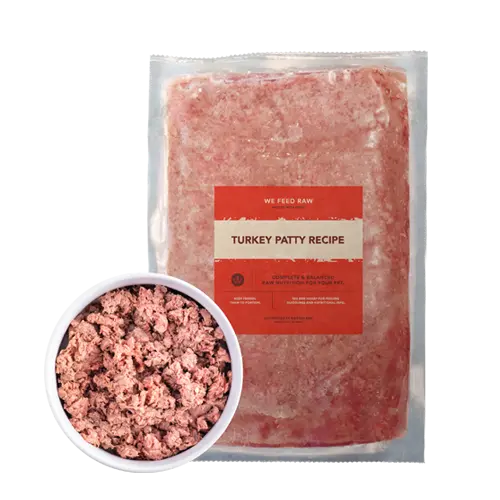
Gastropexy Surgical Procedure
The Gastropexy surgery is conducted on high risk breeds with deep chests , and is a preventative measure to keep the stomach from torsion (Twisting).
In this surgery, the surgeon will tack the stomach to the body wall in order to prevent it from twisting. This is a major surgery that requires anesthesia, but has been shown to be effective in preventing bloat.
The Gastropexy surgery is not 100% effective in preventing bloat, as there are other factors that can contribute to bloat (such as anxiety), but it can help to minimize the risk.
The gastropexy surgery works as a preventative surgery for the twisting stomach (torsion), but does NOT stop the process of air filling the dog’s stomach if bloat does happen.
Why Is The Preventive Surgery Important?
The reason it is important that the twisted stomach is prevented is that the twisting of your dog’s stomach (torsion) can be deadly within minutes, whereas when the dog’s stomach fills with air (bloat). Therefore, conducting this surgery with veterinary surgeons can buy you time to get your dog to the Emergency Room when you see the very first early signs of bloat.
What it DOES: Gastropexy: Fights to stop Torsion, which is when the stomach of the affected dog begins to twist.
What it DOES NOT DO: Gastropexy: DOES NOT treat bloat, prevent bloat or give an ‘out’ for always being on the look for signs of bloat.
What Should You Do If Your Great Dane Is Bloating?
If you notice ANY clinical signs of bloat in your Great Dane, it is a severe medical emergency.
Look to see if their stomach is in a normal position, and if it looks distended at all, you should take them to the emergency room as soon as possible in order for them to perform veterinary surgery while it is in the early stages.

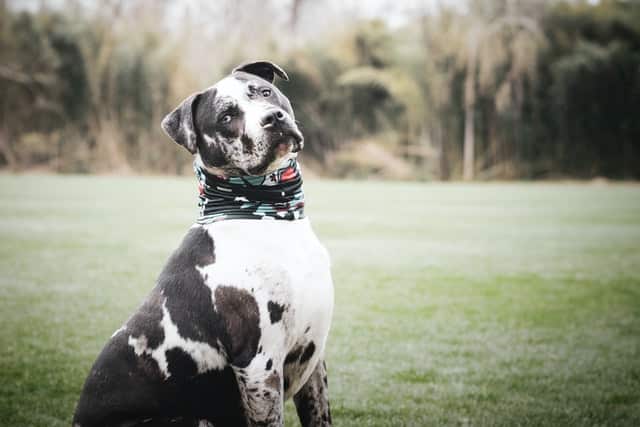
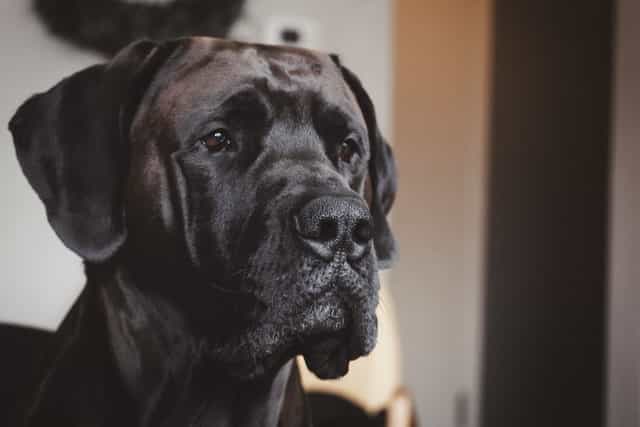
Your dog will receive a quick physical examination, they will diagnose bloat, and then they will conduct surgery to remove the excessive air from the stomach of your Great Dane. While they are conducting surgery, they should make sure that the abdominal wall has not been twisted.
Additionally, if your dog has not already had the Gastropexy surgery, they will likely attach the abdominal wall to the stomach so that future cases of bloat in your Great Dane can be prevented.
In Conclusion
To wrap it up, yes, the Great Dane is one very affected breed of dogs. However, other dogs can bloat as well. Older dogs seem to be more prone to bloating, but again, any dog of any breed or age can bloat.
While there are things you can do to help prevent bloat, such as the Gastropexy surgery and feeding multiple small meals per day, the best thing you can do is to be vigilant and always on the lookout for early signs of bloat.
If you think your dog may be bloating, don’t hesitate to take them to the emergency room so that they can receive treatment as soon as possible. Bloat is a serious medical condition that can be deadly if not treated in a timely manner.
Staying knowledgable and informed is one of the best ways to keep your dog safe and healthy, so make sure to do your research on any health concerns that may affect your dog.
Have you ever dealt with bloat in a dog? Let us know in the comments below!
If you have any questions or concerns about Great Dane bloat, please contact your veterinarian as they will be best equipped to help you and your furry friend. Bloat is a serious medical condition and should not be taken lightly. Thanks for reading!
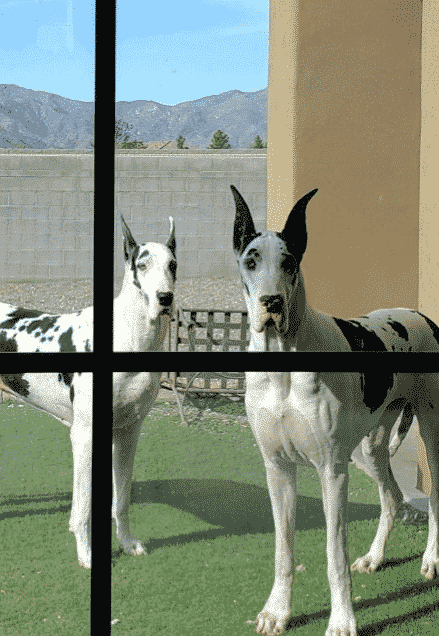
JOIN OUR COMMUNITY
Do you like modern positive+balanced off-leash dog training, science-based information, life with Danes, educated ownership and chatting with other like-minded people?
Join our growing Facebook group!
READ MORE:

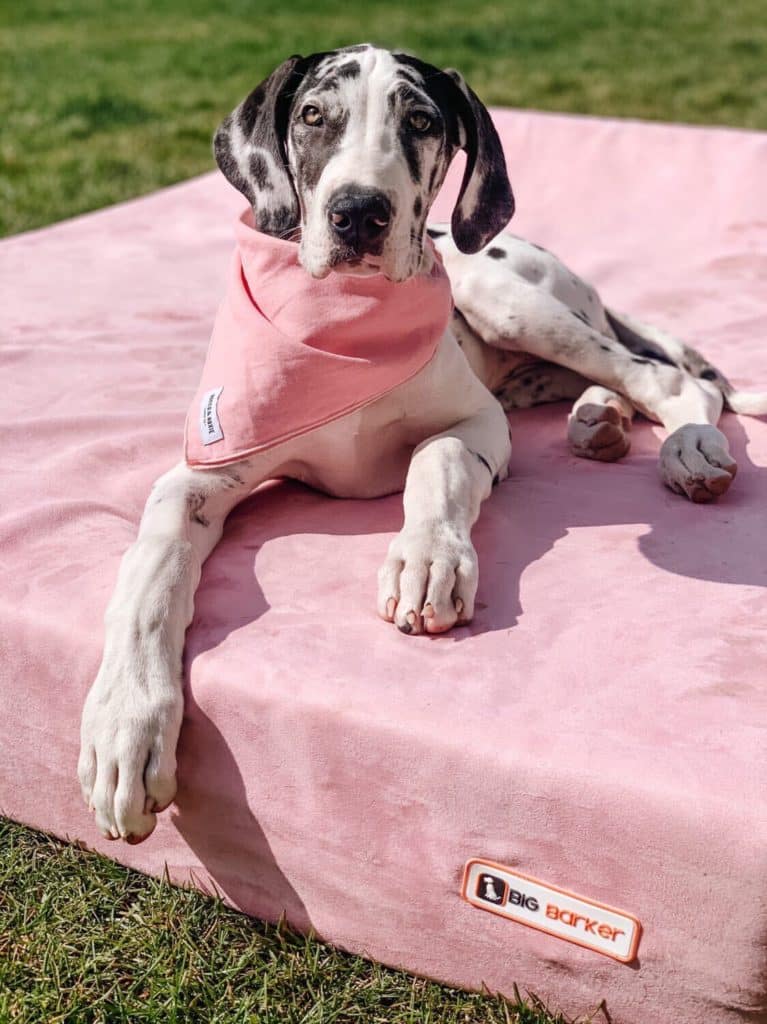
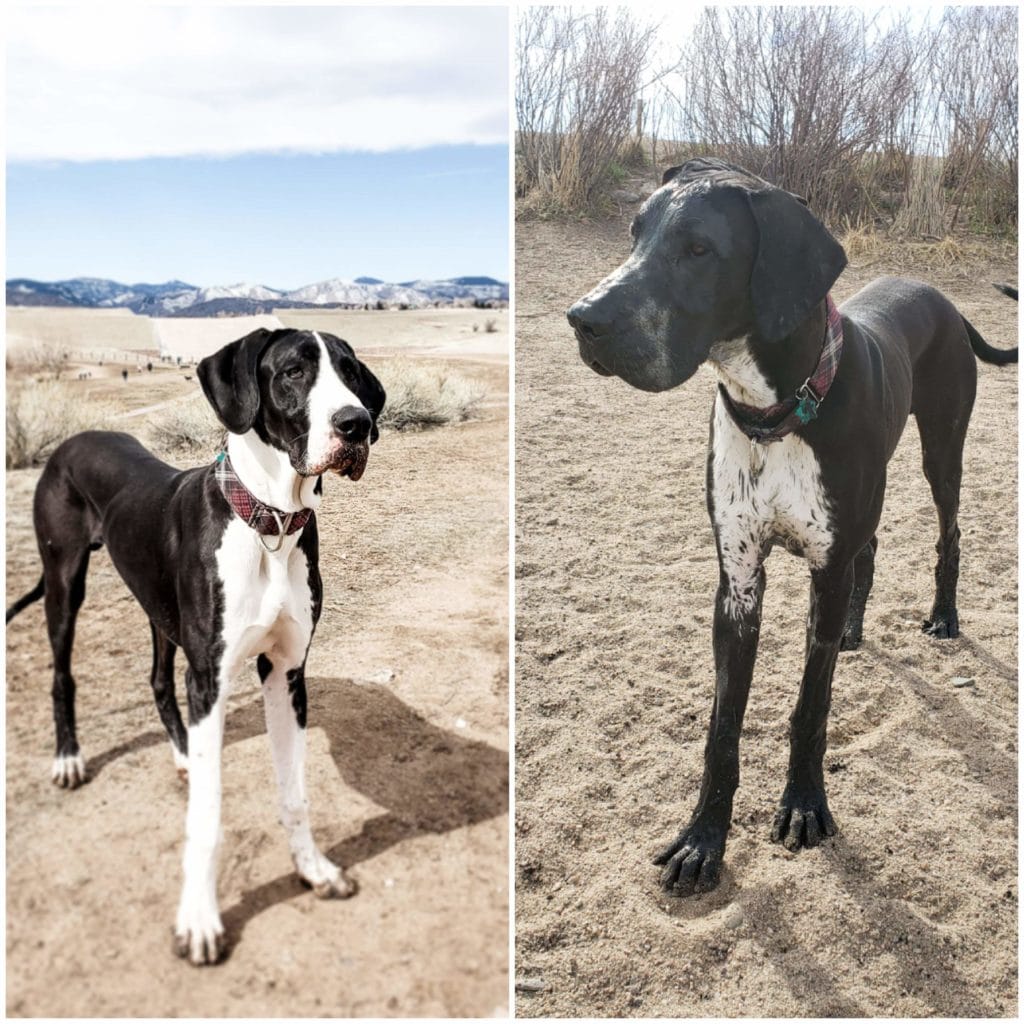

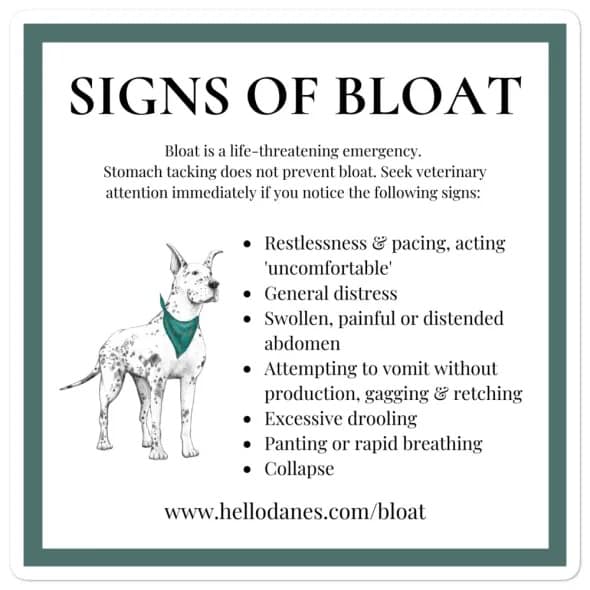

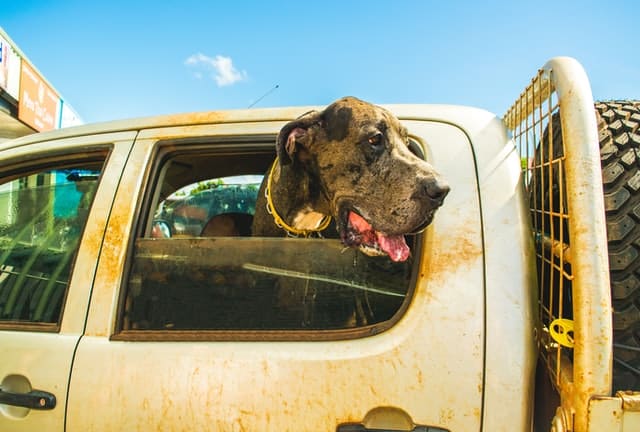
Leave a Reply